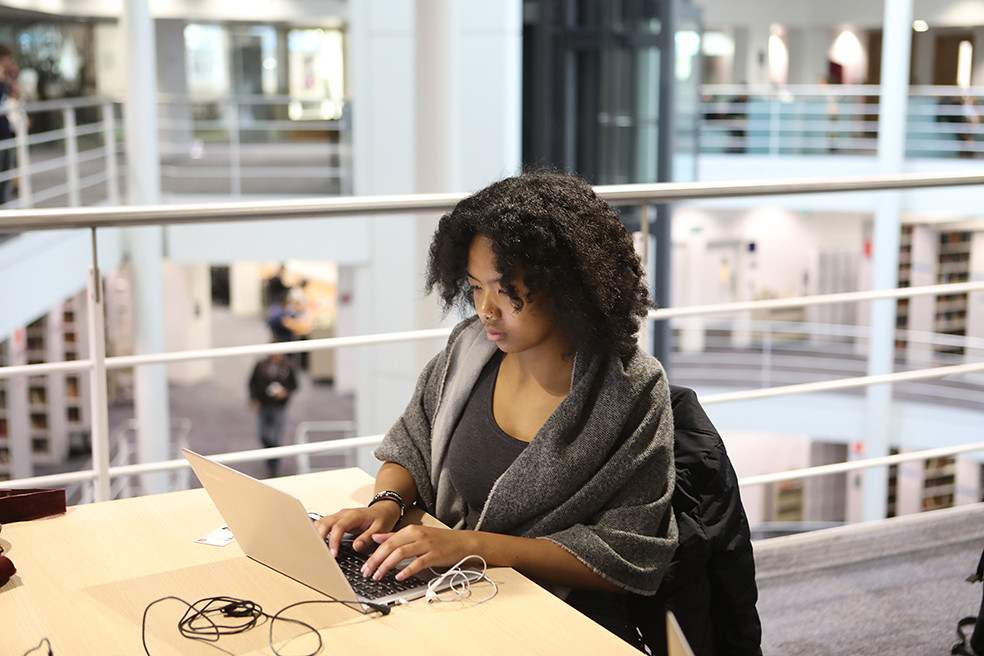Student Ambassador, Nicole Amondi Oloo provides some helpful tips and hacks to manage your time and workload whilst studying at LSE.
Hey offer holders, congratulations on getting into LSE! It’s an amazing accomplishment. LSE is all about discovering the causes of things and in the upcoming year you will definitely be pushed to your intellectual limits in the best ways. LSE has a wonderful way of engaging you in intense debates and interesting conversations and it’s no doubt super exciting. However, you are now faced with the task of getting through all of your assignments and exams over the upcoming year. More than undergrad degrees, masters degrees are a lot more intense because they are so short! But there are some things you can do to ease the intensity and manage the stress of assignments better. Here are my top five tips for surviving all your assignments at LSE:
- Buy a planner! – Loads of things will be happening, especially in the first few weeks of your time at LSE. You’ll be moving in, settling into London but also trying to feel out all the events at orientation all alongside attending your new classes. Later on in the term, you will have weeks with loads of assignments that will creep up on you if you’re not careful (it’s happened to the best of us). Using a planner will be key in helping you manage all the things you’ll be balancing during this year. It can help you keep track of all assignments, office hours, social events e.t.c. so that you don’t miss anything important. It’ll also be key to reducing your anxiety in busy times when keeping track of everything mentally will feel like an extreme sport. Here are a couple of affordable planners that would definitely be helpful.
- Timetables are KEY! Having a good idea of the time you have (and don’t have) can really help you plan your days and get the most out of your week. Beyond knowing when your classes are, it’s important to be able to gauge how much time you’ll need to get there as this can spill over into how much time you have for other things like free time, working out and most importantly binge-watching Netflix. So, it’s important to have a digital or physical timetable that you can keep referring to so you can have an idea of how your days look and consider how much time you have. Here is the website I used to create my own timetable!
- Spreadsheets can be helpful! This may be strange, but it has really helped to have a visual tracker of all the assignments that I have coming up for the semester. I actually have two. One that tracks all my summative assignments and another for all the assessments (both summative and formative) for the semester. I found it helpful to separate the two lists because it helps to know which assessments to prioritise so that I am not getting equally stressed for all my assignments. The tracker helps you to have a sense of what deadlines you have coming up and it can help you keep track of how your modules are actually going. It’s also super satisfying to go back and mark the assignments as completed because it allows you see to see the progress you are making progress in your degree even when you don’t feel like it. Here’s a link to the ones I used.
- NOT.PROCASTINATE – Because it is such a short course, it is quite jam packed and assignments tend to overlap. It can be overwhelming to deal with multiple summatives or formatives, especially if you do them last minute. I would recommend beginning to think about assignments around two weeks before the deadline. This will give you enough time to book office hours if needed, balance between writing multiple assignments and you can have time to develop your arguments.
- Balance! – The true key to making it through all your assignments is being balanced. Working smart rather than working hard is really the best way to go through your MSc. Putting in a good 2/3 hours of work is better than forcing yourself to work for 8 hours straight in the library. Using productivity trackers such as Pomodoro, prioritising mental health and downtime and making time to explore the wonderful city of London will be key to doing well in your degree. Resting and taking time for yourself will make you happier, healthier and that’s when you’ll do your best. So make sure to enjoy your programme as much as possible!
Nicole Amondi Oloo is an MSc International Development and Humanitarian Emergencies candidate and a Student Ambassador. You can contact Nicole by emailing intdev.mentors@lse.ac.uk and mentioning her name in the subject title.
The views expressed in this post are those of the author and in no way reflect those of the International Development LSE blog or the London School of Economics and Political Science.






